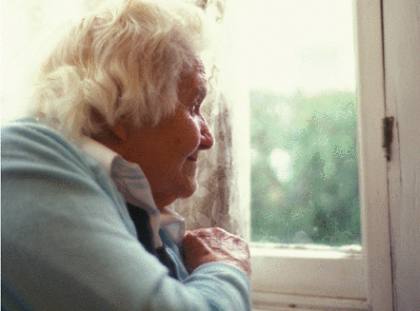
Thanks to Alison from the Care Quality Commission for this latest update. The Isle of Wight has not been specifically mentioned in the national report, but we thought many of you would be interested in the national picture. Ed
The findings of a report into home care launched today, Wednesday 13 February, by the Care Quality Commission, show that people want to be listened to, respected and able to exercise choice. The report entitled, ‘Not just a number’, will be launched at a Parliamentary breakfast hosted by Rosie Cooper MP, member of the House of Commons Health Select Committee.
Overall CQC found most providers were delivering a good service, but a minority of people are affected by late or missed calls, lack of continuity of care workers, unsupported staff; poor care planning, and failures of providers to listen to people using services and their families and carers.
Inspections checked the quality of home care provision
The report captures the findings from a programme of themed inspections covering 250 domiciliary care (home care) agencies providing at-home support and care to around 26,500 people. The inspections checked the quality of home care provision for people aged 65 and over across England.
David Behan, Chief Executive of the CQC said: “People have a right to expect to be treated as an individual, to be able to exercise choice, and to make sure their carers are aware of their specific care needs. We found plenty of evidence of this however we also found elements of poor care which happen too often.”
The report identifies levels of compliance against five of CQC’s national standards:
- Respecting and involving people who use services.
- The overwhelming majority of providers were respecting and involving people (97% or 241 providers). Where providers were failing to meet an element of the standard, we found people did not feel valued because their visits were often delayed or sometimes cancelled. This was made worse if people were not kept informed if their care worker was going to be late. It sometimes appeared that people were resigned to accepting a level of unreliability within the service.
- The care and welfare of people who use services.
- The majority of providers were promoting the care and welfare of people using this service (85% or 212 providers). Thirty-eight providers were not meeting this standard, with just under a third of these located in London. We found a number of occasions when risks associated with a person’s care or medical conditions, such as diabetes or catheter care, had not been assessed, and care plans had not been updated for several years.
- Safeguarding people who use services from abuse.
- The overwhelming majority of providers were safeguarding people from abuse (96% or 240 providers). Many providers had processes that detailed the action that staff and managers had to take if they suspected any abuse and all agencies had a whistleblowing procedure. Of the ten who failed to meet this standard five were found to have a moderate impact and CQC took enforcement action against one provider.
- How providers support their staff.
- The majority of providers were supporting their staff (88% or 221 providers). People who receive care in their own home, and their relatives, value care workers who are knowledgeable and understand their or their relative’s condition. Twenty nine providers were failing to meet this CQC national standard, of these, three were judged to be of moderate impact on patients and one service was judged to be major.
- How providers assess and monitor the quality of the services they deliver.
- The majority of providers demonstrated an ability to monitor and assess their services (85% or 212 providers). CQC inspectors saw a range of effective methods of monitoring quality including: agencies that made weekly phone calls to people using services to check that the care was meeting their needs; and annual quality audits. Of the 38 agencies who failed to meet this standard 15 agencies were judged to have a moderate impact and two had a major impact on people.
Most people content with service
Overall, our inspections have revealed that many agencies are providing a service to people in their own homes which they value and are content with. But we have also seen that some areas need improvement and action from those who commission and provide home care.
Overall the report makes 15 recommendations aimed at driving improvement across the sector. Providers need to work more closely with local authority commissioners to improve care and find solutions to these common problems, and put systems in place to monitor the impact of missed or late visits on people receiving care. Where providers are failing to meet CQC national standards they must learn from the good practice that exists across the sector.
The report has identified a reluctance to complain, some people are worried about getting their regular care workers into trouble and others may be worried about reprisals if they complain. The CQC wants to use this report to inform people of what good home care and poor home care look like.
The report is embedded below for your convenience




